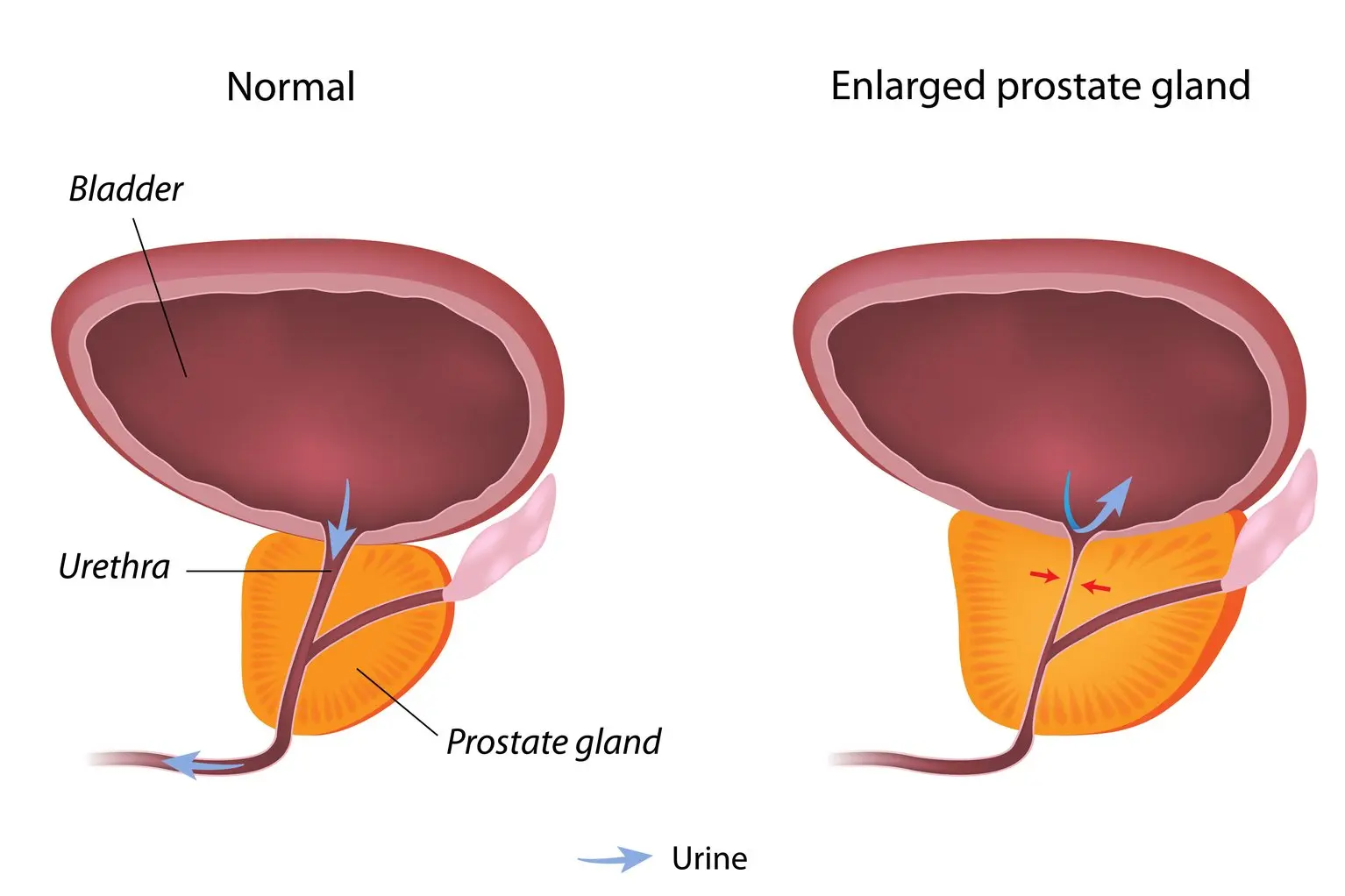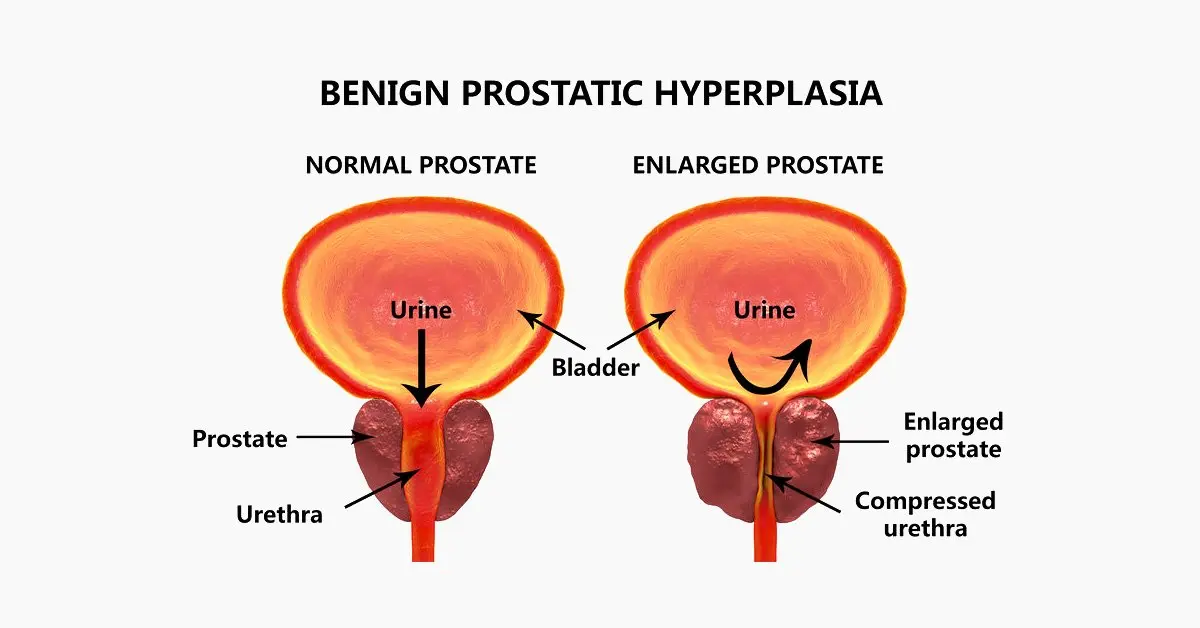Can Benign Prostate Enlargement be Cured?
No
Management focuses on relieving symptoms and preventing complications

What is Benign Prostate Enlargement?
Benign prostate enlargement, also known as benign prostatic hyperplasia (BPH), is a non-cancerous enlargement of the prostate gland in aging men. It can cause symptoms such as difficulty urinating and increased frequency. Treatment options range from medications to surgical procedures, depending on the severity of symptoms.

Clinical Aspects

Characteristics
Non-cancerous growth of the prostate gland

Symptoms
Frequent urination, difficulty starting urination

Diagnosis
Clinical examination, imaging studies

Prognosis
Generally good with appropriate management

Complications
Urinary symptoms, complications of surgical interventions
Etiology and Treatment

Causes
Aging, hormonal changes

Treatments
Medications, lifestyle changes, surgery (in severe cases)

Prevention
Medications, lifestyle changes, surgery (in severe cases)
Public Health and Patient Perspectives

Epidemiology
Common in older men; non-cancerous enlargement of the prostate

Patient Perspectives
Treatment depends on the severity of symptoms and may include medications or surgery
This information is for general understanding and is not a substitute for professional medical advice. Always consult with healthcare providers for accurate and personalized information related to your health.
Share: